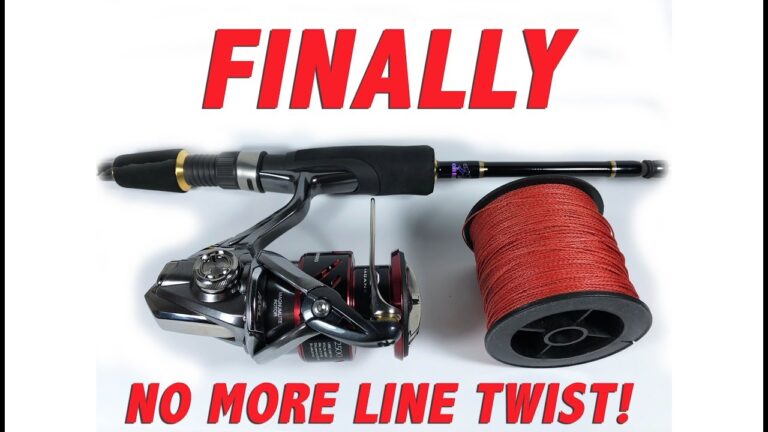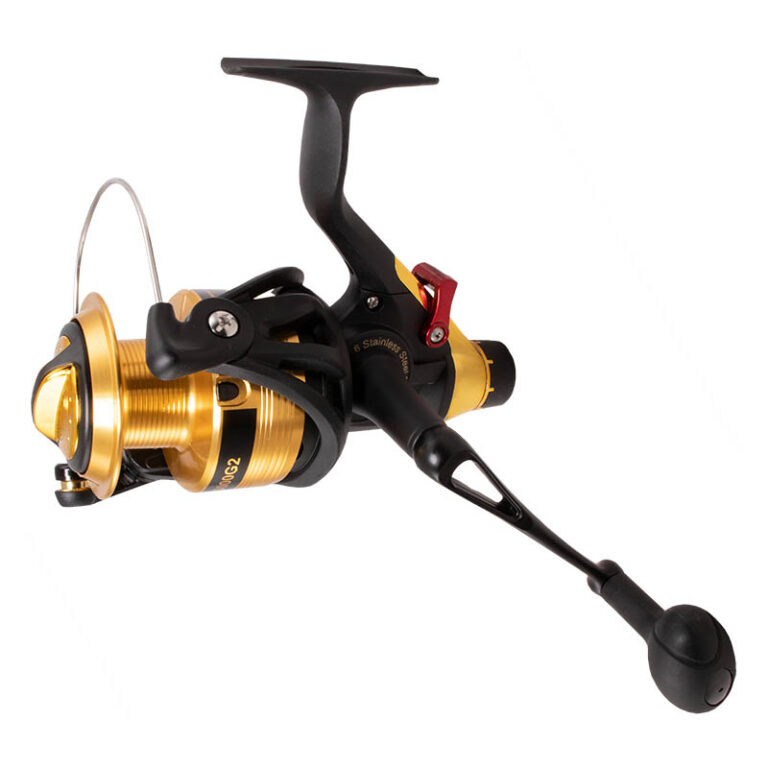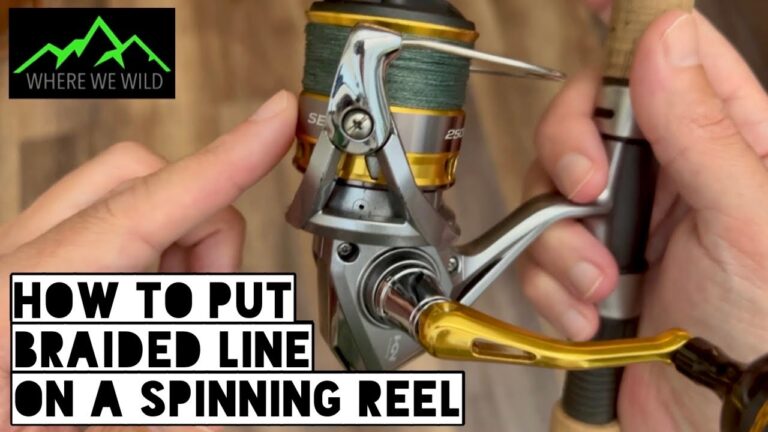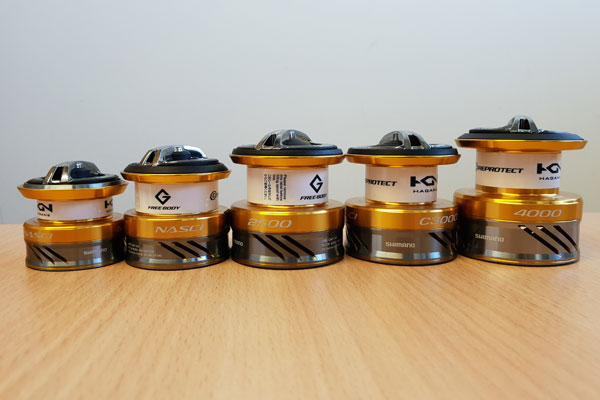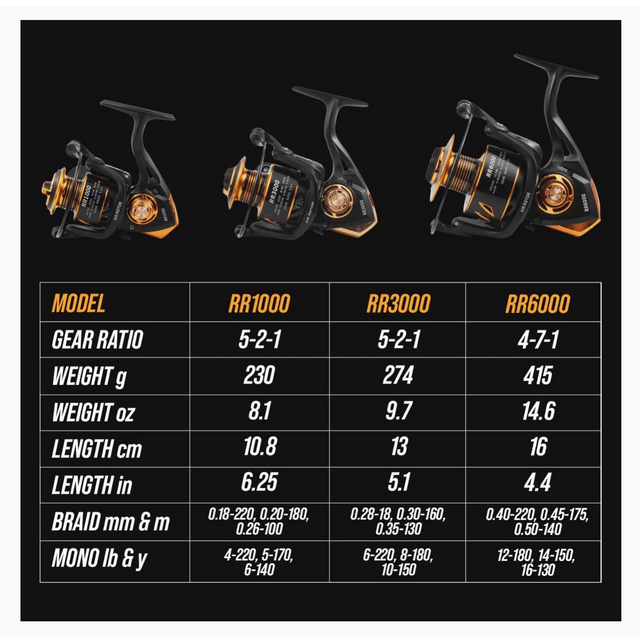How Many Yards of Line on a Spinning Reel
The amount of line a spinning reel can hold depends on the reel’s size and the line’s thickness. Generally, spinning reels accommodate 100 to 300 yards of fishing line.
Selecting a spinning reel for your fishing adventures is crucial for a successful catch. Spinning reels, popular among anglers, come in various sizes, each with a different line capacity. This capacity is significant because it determines the reel’s ability to handle long casts and fight with fish.
Anglers must consider both the reel size and the line weight when spooling a reel, aiming for a balance to maximize their fishing efficiency. Understanding the specific yardage your spinning reel can hold aids in choosing the right reel for the targeted fish species, ensuring you’re well-prepared for any fishing scenario.

Credit: m.youtube.com
Optimal Line Capacity For Spinning Reels
Knowing the right yardage of line for your spinning reel is crucial. Your reel’s spool size plays a key role in determining this. Line capacity is often mentioned in a reel’s specs. A reel rated for 8-lb test might hold 200 yards of line.
The line’s diameter and material affect how much will fit on the spool. Thicker lines take up more space, reducing overall capacity. For a versatile setup, choose a monofilament line as it is thinner. Braided lines, although stronger, might not require as many yards due to their strength.
A balance between strength and capacity is necessary for effective fishing. Match your fishing environment and target species with the right line. Thicker, stronger lines are suited for larger fish, but at the cost of less line on your reel.
Types Of Fishing Line Materials
Fishing lines come in various materials. Monofilament lines stretch and absorb shocks well. Braided lines have no stretch, offering more sensitivity.
Different materials mean different yardages fit on reels. Thicker monofilament means less yardage compared to thin braided lines.
Spool Size And Line Yardage
Understanding your spinning reel’s line capacity is crucial for optimal performance. Manufacturers often mark spool capacity on the reel itself. This marking indicates how many yards of line the reel can hold. You’ll see numbers such as 6/200, 8/150, or 10/100. These numbers mean the reel can hold 200 yards of 6-pound test line, 150 yards of 8-pound, or 100 yards of 10-pound.
The spool design plays a key role in the amount of line stored. Wide spools provide room for more line, which can mean longer casts. Conversely, narrow spools can lead to more line twist and potential tangling. The material of the spool also matters. For instance, braid-ready spools allow you to use braided line without it slipping.
| Line Test (pound) | Yardage (yards) |
|---|---|
| 6 lb | 200 yards |
| 8 lb | 150 yards |
| 10 lb | 100 yards |
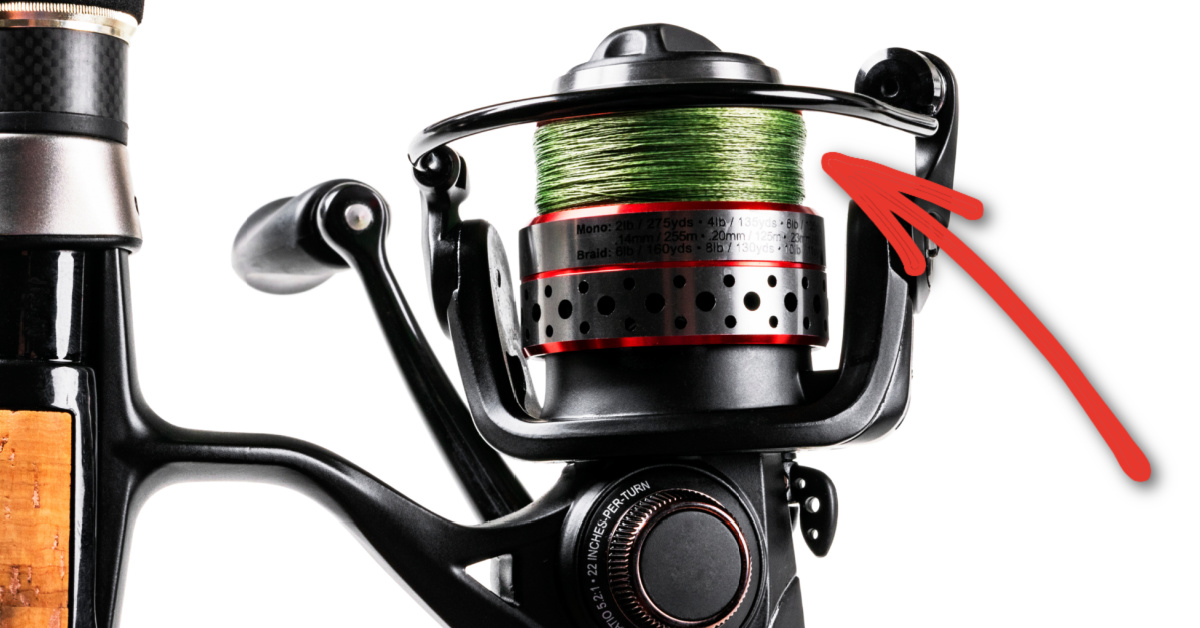
Credit: www.saltstrong.com
Line Diameter And Its Effects
Choosing the right line diameter is essential for a good fishing experience. Thin lines cast farther and are less visible to fish. But, they are also weaker. Thicker lines are stronger and more visible. They can handle heavier fish.
The yardage of line on a spinning reel depends on the line’s thickness. A thicker line takes up more space. This means fewer yards will fit on the reel. A thinner line means more yards can fit.
| Line Diameter (mm) | Yardage on Reel |
|---|---|
| 0.20 | 330 yards |
| 0.25 | 270 yards |
| 0.30 | 220 yards |
Practical Tips For Spooling Your Reel
Proper spooling of your spinning reel ensures optimal performance. A common mistake is either overfilling or underfilling the spool. An overfilled spool leads to line knots and tangles. Conversely, an underfilled spool decreases casting distance and line retrieval.
To maximize line performance on the water, aim for a spool that is 95% full. Ensure the line lays evenly across the spool, without any bulges. This achieves the right balance, enhances casting accuracy, and improves your fishing experience.
Common Mistakes To Avoid
Incorrect line loading techniques can lead to tangled reels and lost fish. Be sure to use a consistent tension while spooling. Reel manufacturers often provide specific yardage capacities. Yet, many anglers overlook the type of fishing they plan to undertake. For light fishing, less line may suffice. Conversely, deep-sea fishing demands more line due to the depth and the fish’s potential strength.
The common mistake is not considering reel size and line diameter. A larger diameter line takes up more space, reducing total yardage. Aim for the optimal balance between line strength and reel capacity. It’s crucial to understand the species of fish you’re targeting and the environment. A table can help determine the right amount of line.
| Fishing Type | Yardage |
|---|---|
| Freshwater | 100-150 yards |
| Coastal | 150-200 yards |
| Deep Sea | 200+ yards |

Credit: fishingdiscoveries.com
Frequently Asked Questions Of How Many Yards Of Line On A Spinning Reel
Is 100 Yards Of Fishing Line Enough?
For small fish or close-range casting, 100 yards of fishing line is sufficient. However, for larger game or deep-water fishing, more line may be necessary. It’s essential to consider the fishing environment and target species.
How Much Line Do I Put On My Spinning Reel?
Fill your spinning reel with line until it’s approximately 1/8 inch from the rim. Overfilling increases tangles, and too little line reduces casting distance. Check your reel’s capacity indicated on the spool for line weight and length recommendations.
How Many Yards Should I Put On My Reel?
Fill your reel with yards of line matching its capacity, often found in the reel’s specifications or manual. Overfilling can cause tangles, while too little reduces casting distance and fish fighting capabilities.
Is 300 Yards Enough Fishing Line?
For most fishing situations, 300 yards of line is sufficient. It covers various fishing types and provides ample capacity for long runs by strong fish. Always match line length to your specific fishing needs and reel capacity.
Conclusion
Selecting the right amount of line for your reel ensures a successful day on the water. Tailor your line yardage to your fishing needs and reel capacity. Remember these tips for a balanced setup, and you’ll be casting with confidence.
Embrace the perfect line-to-reel ratio for your next aquatic adventure!
